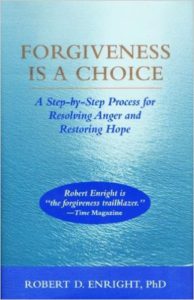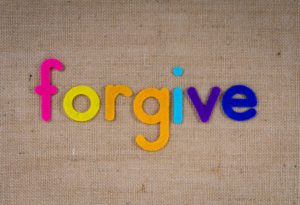Tagged: “Why Forgive?”
Matthew Perry, Shame, and Self-Forgiveness
For many people, Matthew Perry was most well known as the fun-loving, affable, charming Chandler Bing from the iconic 90s sitcom ‘Friends’. As with all people who live their lives in front of an audience, there is always a more complex story and this was no different for Matthew Perry, who tragically passed away recently. Thankfully, he sought to address his personal and relational struggles with honesty and courage and was not afraid to share that journey with others.

Image from Pexels.com
In the aftermath of his premature death, the New York Times posted a guest essay by Heather Havrilesky in which she reflected on some excerpts from Perry’s autobiography that addressed his experience of shame, self-forgiveness, and how his journey of self-forgiveness can be a pathway to becoming more forgiving and compassionate with others.
Havrilesky reflects in the article that Matthew Perry seems to feel a constant sense of shame that he just cannot shake:
In fact, the one person Mr. Perry can’t seem to forgive, at least for a majority of his book, is himself. He casts himself as the person who deserves blame for everything that happens.
She goes on to propose that many of us struggle with a similar dynamic of shame and self-loathing and that we would do well to walk the path of self-forgiveness so that we may find peace and be able to extend that peace to others around us. As she states elsewhere in her essay:
[W]hen you find forgiveness inside your own heart, suddenly, it’s everywhere else as well.
Be sure to read and share the essay as an invitation to experience the healing that self-forgiveness offers!
Dr. Enright Featured in the Wisconsin State Journal Newspaper

Dr. Robert Enright
The Wisconsin State Journal newspaper has a regular column entitled, Know Your Madisonian. On Saturday, October 21,2023 Dr. Robert Enright was the featured guest in that column, which was a “top story, editor’s pick” that day. The reporter, David Wahlberg, stated that Dr. Enright’s basic approach to forgiveness in world conflict zones is that “forgiveness begins at home.” In other words, when groups have been in conflict for a long time, it is best not to start peace dialogues with forgiveness, but instead to first grow in this moral virtue by practicing forgiveness in the everyday annoyances of one’s own home and community. Because forgiveness is difficult and takes time, he recommends practice and then more practice first with loved ones in the give and take of family and local community life. This helps people to grow in the moral virtue of forgiveness. Once they become more “forgivingly fit,” then people may be more receptive to the idea of group-to-group forgiving. If both sides can bring a mature perspective of forgiveness to the peace table, then the dialogue is less likely to include wounded hearts that are filled with resentment or even hatred.
On Contemplating the Forgiveness Process to “Do No Harm”
 There is a part of the forgiving process that we have described in two distinct publications, The Forgiving Life and Forgiveness Is a Choice, where we ask the forgiver to “Do no harm” to the one who has been unfair. In actuality, the concept of “Do no harm” serves as a bridge to the much more challenging task of loving someone who has wronged you. Even though it’s an earlier and purportedly simpler step in the process, “Do no harm” is anything but simple.
There is a part of the forgiving process that we have described in two distinct publications, The Forgiving Life and Forgiveness Is a Choice, where we ask the forgiver to “Do no harm” to the one who has been unfair. In actuality, the concept of “Do no harm” serves as a bridge to the much more challenging task of loving someone who has wronged you. Even though it’s an earlier and purportedly simpler step in the process, “Do no harm” is anything but simple.
 Three things are meant by “do no harm”: 1) Don’t try to deliberately hurt the person who offended you (such as being impolite); 2) Don’t do covert harm (such as sneering, ignoring at a gathering, or remaining impartial toward this one who shares personhood with you); and 3) Don’t hurt other people because of your inner discontent from the one who was unfair to you. Stated differently, it is surprisingly simple to channel your resentment toward Person X onto Persons Y and Z. Perhaps it is a sign that you are projecting anger from a past encounter onto your present interactions if people have to inquire, “What is wrong with my friend today?”
Three things are meant by “do no harm”: 1) Don’t try to deliberately hurt the person who offended you (such as being impolite); 2) Don’t do covert harm (such as sneering, ignoring at a gathering, or remaining impartial toward this one who shares personhood with you); and 3) Don’t hurt other people because of your inner discontent from the one who was unfair to you. Stated differently, it is surprisingly simple to channel your resentment toward Person X onto Persons Y and Z. Perhaps it is a sign that you are projecting anger from a past encounter onto your present interactions if people have to inquire, “What is wrong with my friend today?”
It’s wise to assess your level of resentment at these moments and consider who you should forgive today. Consider asking yourself: As I offer forgiveness, am I “doing no harm”? Because of what I am going through, am I exercising caution so as not to hurt innocent people?
I’m offering you a challenge today: Don’t hurt anyone today. Do the same tomorrow. Do it the day after that.
![]()
What Moral Virtue Underlies Forgiving?
Some say the underlying moral virtue of forgiveness is respect as we see the worth in others. I make the claim in the book, The Forgiving Life, that the deepest moral virtue underlying forgiveness is love, particularly agape. Here is an excerpt on agape from The Forgiving Life (2012):

Image by Pexels.com
Love, properly understood, reaches higher and goes farther in explaining who we are compared with rationality, free will, and even good will. According to Aristotle, there are four different kinds of love: the natural love that exists, for example, between a mother and her child (storge in Greek), the love that develops strongly among friends (philia), the love that is forged between romantic partners (eros), and a fourth love (agape) based on service to others (developed more fully in medieval times by Thomas Aquinas). The first three kinds of love (storge, philia, and eros) depend for their proper expression on agape or service love (loving even when you do not feel like it, loving when you are tired, loving when the other seems unlovable). C.S. Lewis, who wrote The Chronicles of Narnia, makes this point of the philosophical centrality of agape. Agape, according to Lewis, is the highest form of love precisely because it nobly and courageously perseveres when the other kinds of love say, “Ouch! I’m outta here! Run!” With agape love, a person chooses to love, even when it hurts. In other words, it comes from a free will (we choose it) and from both a good will (we choose it to help others even if we are uncomfortable) and a strong will (we do not run away from and carry on despite the difficulty), and it makes sense (coming from a position of rationality).[1] Agape love has an inherent goodness within it that is missing from rationality and free will.
Further, without a sense of love which is deliberately in service to others, all of the other loves can be distorted and not be inherently good in themselves. Take eros as an example. Is it the best kind of romantic relationship when the partner degenerates into a “What’s in it for me?” pattern? Agape balances the tendency in eros to seek one’s own pleasure primarily and says, instead, “How may I serve you?” Agape is a kind of love that has dignity, quiet, and strength as it seeks to build up and even restore others. Agape helps us to see others as possessing inherent worth, a quality that is not earned. The paradox of agape in the context of forgiveness is that as a person reaches out to others who have been unjust, he experiences considerable emotional healing.
I used the word “balance” in the paragraph above. Balance was an important idea for Aristotle, who called it temperance. Each expression of love, whether it is storge, agape or another variety, itself needs balance unless it becomes distorted by overdoing or under-doing it. For example, if people distort agape by begrudgingly overdoing it, they could perform supposed acts of love with deep resentment, deplete their own reserves, or burn out, without being able to love well at all. If people under-do agape, their efforts may be half-hearted, even indifferent as they preform this lazy distortion of agape. The point is to strive for a good, solid expression of service love without overdoing or under-doing it. Wisdom helps us to know how much is enough.
Love then, in the form of agape, may be the most fundamental and the most important aspect of our being for this one reason: It is inherently good in that, by its definition, we seek meaningful and healthy relationships with others, and therefore it is good for others and for us. All other virtues, by themselves, do not necessarily fulfill any lasting connection between and among people. Justice, by itself, can be a rather cold virtue as, say, a magistrate almost indifferently sentences a person as a rightful punishment for a crime. Courage, by itself, can be a grim duty as, say, a soldier goes to battle because he is ordered to do so. If the need for meaningful connections is part of our religious, ethical, psychological, and biological essence, then agape love is central to that essence. If the fulfillment of meaningful connections is part of our end-point as human beings, then the mature understanding and expression of agape love is a major part of that end point or what philosophers call our summum bonum or greatest good to which we strive.
[1] Lewis, C.S. (1960). The four loves. New York: Harcourt, Brace, & World. I can almost hear Kant say something like this: Love is an end-point of morality (what we are striving for) whereas a good will is what we need fundamentally at the beginning to make any moral response possible. I would argue, instead, that love is both a fundamental issue (existing at first in us as a capacity and as an actuality developing slowly in small ways) and as an end-point. It is our essence (our fundamental building block of morality, along with rationality, and a free, good, and strong will) and its perfection is our goal (as we grow stronger in it with practice and reflection).
![]()
Dr. Enright and the International Forgiveness Institute are one of the ‘Six Things Psychologists are Talking About’….
The American Psychological Association (APA) features a monthly column on their website entitled ‘Six Things Psychologists Are Talking About’ and in August of this year they featured a podcast interview with Dr. Enright on the healing power of forgiveness as one of the ‘six things’! The episode is entitled ‘The Power of Forgiving Those Who’ve Hurt You’ and features a wide-ranging conversation with Dr. Enright as he shares what forgiveness is, how it can help people grow and heal in a variety of ways, and how the forgiveness education initiatives sponsored by the International Forgiveness Institute have impacted thousands of children and communities around the world. The podcast is roughly 30 minutes and is great to listen to while driving, taking a walk, or even folding laundry. 🙂
Enright shared the following in the podcast regarding what inspires him to keep doing the work of forgiveness education after 38 years:

Image by Pexels.com
What keeps me going is the passion for what we find. It has actually surprised me, the strength of the findings when people are gravely hurting psychologically, and are healed from, let’s say, major depressive disorder. And that gives me a hope, and the hope keeps me going, that we can indeed create a better world, one heart at a time. And so, I would say on the table as my wishlist, more insight that forgiveness education is worthwhile for children and adolescents. And, here’s a big one, community forgiveness. And we’re actually starting to work on that in different war-torn communities, especially in Africa.
We’ve been approached by four different communities in different geographic areas of Africa. Coming to us, saying, “Can you help us? We have had civil wars.” I just had a meeting this past week with someone from an African community who told me one million people, Kim, one million people have died in this century from the civil wars. And he said, “We need to bring forgiveness into communities, into individual hearts, families and communities, and then community to community.” But see, both communities have to be astute enough and motivated enough to become well-versed in forgiveness. And then, what will happen? I want to find out.
Be sure to check out the podcast to hear more about the power of forgiveness to bring healing to you, your loved ones, and the world!



